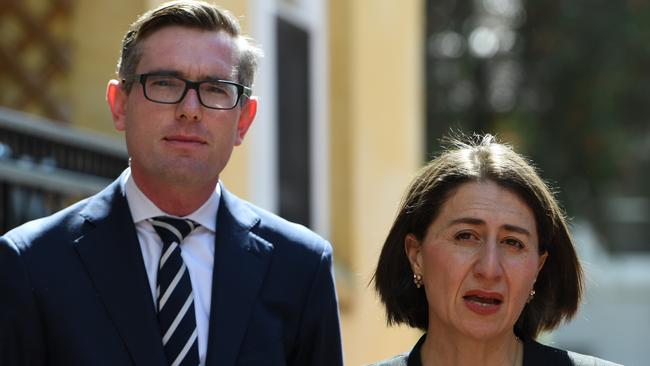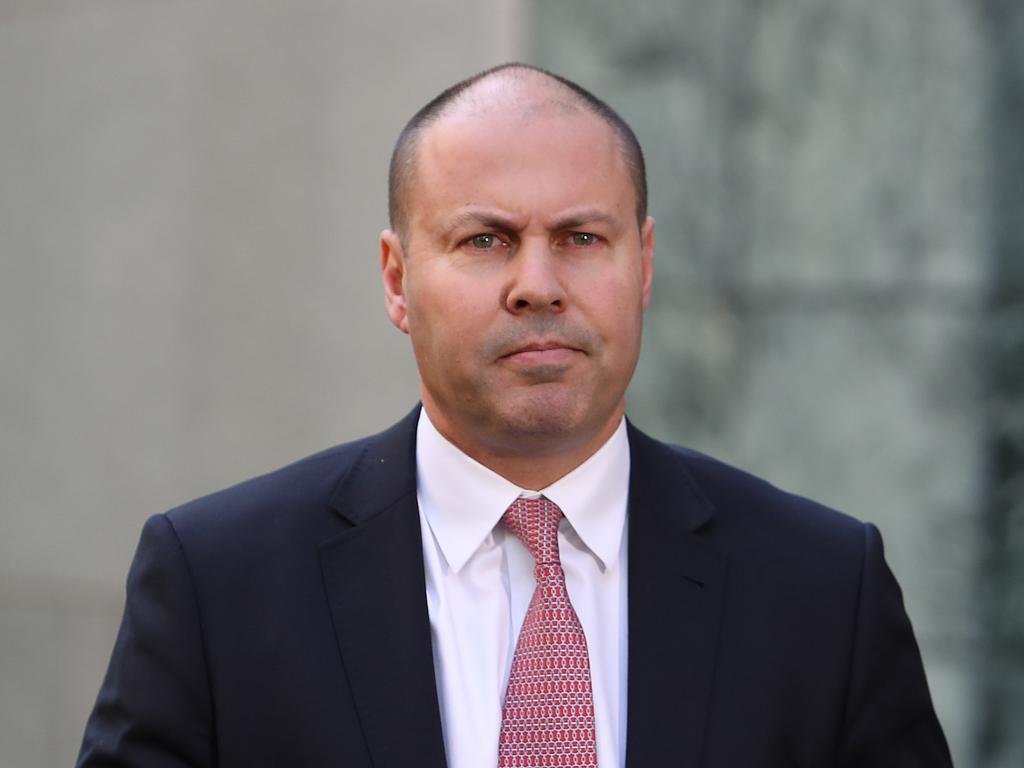Bold federation proposal widens the GST, axes stamp duty
The GST would be broadened and stamp duties scrapped under a bold new plan.

The goods and services tax would be broadened, stamp duties scrapped and messy federal-state funding agreements abolished under a call for a major reform of the federation proposed by the NSW government.
In a bid to make states less dependent on Canberra and take advantage of a one-in-60-year alignment of state and federal political cycles, NSW said it wanted “to drive a national vision for the federation that encourages innovation and competition”.
READ MORE: Treasurer won’t ‘squander’ surplus | Recession we don’t have to have | IMF vows to do what it takes
Declaring the federal financial architecture “fundamentally flawed”, NSW Treasurer Dominic Perrottet, who established a panel to review the state’s federal financial relations, said states, especially NSW and Victoria, needed to take the lead in advocating the benefits of reducing their financial dependence.
The Australian understands Victoria and NSW plan on closely co-ordinating any reforms.
“Fixing federal financial relations is the single biggest challenge facing the states and embarking on reform is key to drive future productivity and economic growth,” he said.
The first of a series of reports by the Review of Federal Financial Relations, chaired by former Telstra chief executive David Thodey and including former New Zealand prime minister Bill English, singles out “highly inefficient” property stamp duty and the shrinking coverage of the GST.
The report goes well beyond the agenda set by Josh Frydenberg at a meeting of state and federal treasurers earlier this month, which focused on measures “to boost the nation’s productivity and to develop actionable items in the areas of transport, health, skills and environmental regulation”.
Federation reform has been in the too-hard basket since the Turnbull government in 2016 dumped an earlier Coalition pledge to issue a white paper on how to fix the relationship between the states and the commonwealth. “We can’t wait until it’s too late. We have a situation which might not happen again for 60 years: the electoral cycles of NSW, Victoria and the commonwealth are lining up,” Mr Perrottet said.
MORE NEWS:
Sarah Hanson-Young slapped down over climate ‘emergency’
Electricians’ wage push ‘will cause job losses’
Mr Thodey said the conversation had to be broader than just tax reform, “a subject that creates a lot of emotion”, he said.
The tax base of the GST, the states’ biggest source of unconditional federal funding, has dropped below 56 per cent of consumption spending for the first time, as the share of household spending on health, an exempt category, continues to grow. GST revenues were marked down by $8.3bn over the next four years in the most recent federal budget.
On current trends, the gap between NSW revenue and expenditure would grow to $20.6bn by 2026, requiring a fifth of revenue to be dedicated to servicing debt.
“To put this in perspective, the state’s entire education budget would not have the revenue to support it,” the report added.
The review panel, which also includes former Finance Department boss Jane Halton and former deputy prime minister John Anderson, takes aim at 30 tied funding arrangements between the states and Canberra that each oversees less than $10m of funding.
The states accounted for almost half of government expenditure yet raise about 24 per cent in taxes. The three biggest states, NSW, Victoria and Queensland, are set to spend $186bn on infrastructure over the next four years.
NSW relies on the federal government for almost 40 per cent of its revenues, including GST payments and “tied” grants that stipulate how funds are spent. Since 2009, the number of federal constraints on states has blown out from 22 to more than 300.
The NSW Productivity Commission, set up by Mr Perrottet, showed stamp duty cost the economy $2.35 for every collected dollar, compared with 16c for land tax.
The panel will release recommendations early next year after a consultation period.
Economics professor John Freebairn and law professor Anne Twomey are also review panellists.





To join the conversation, please log in. Don't have an account? Register
Join the conversation, you are commenting as Logout